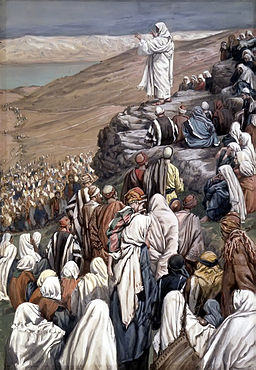Religion and Politics - Acting on Conscience
03 Feb 2023 Australian Centre for Christianity and Culture
Religion and politics – Acting on Conscience
The Sydney Morning Herald has published a piece by Margot Saville, saying religion crosses into politics. It has always been so. One of the points she makes is that both sides of politics have allowed their faith to influence their conscience vote. Arguably, all people should follow their informed conscience, a person of faith most surely is a person of conscience. To do otherwise is to act against one’s well-being, leading to moral, emotional, and psychological ruin. John Calvin said, ‘The torture of bad conscience is the hell of a living soul.’ We would not expect atheists to go against their conscience, so why should we expect Christians to?
Saville also suggests that Christians tend to vote conservatively on social issues. Christianity (like many other religions) contains within it a diverse group of people with many different views. While some may vote conservatively on social issues according to the dictates of their conscience, other Christians may feel their conscience leads them to vote more progressively or as Pope Francis teaches with compassion.
The Bible contains writings from many different authors, in different contexts and at different periods of time. Not all Christians will read it and think it tells them the same thing. However, one thing most Christians would agree upon is that its main message is love. Some may show that love through the actions of individuals or faith communities, like the ones Saville admires, ‘whose core Christian values’ translate to helping people in need. Others may express their love through participating in fellowship, the type of praying and laying of hands that Saville and others may find cringeworthy. For some, love compels them to safeguard moral values. For others, love will lead them in a pursuit of social justice and a powerful desire to help the oppressed and needy.
Executive Director of the Australian Centre for Christianity and Culture, Professor Anthony Maher, sent the six major political parties questions around eight key issues raised from his Trinitarian and political reading of the Beatitudes, questions relating to: affordable housing, aged care, our common home (caring for the earth), indigenous recognition and reconciliation, poverty and exclusion, integrity in our institutions, refugees and asylum seekers and peace on earth.
These truths of the Gospel ask questions of all people of conscience. The Beatitudes express deep Christian values into political reality, they require a person of Conscience, people of faith and no faith, to engage in the politics of our day, for the pursuit of the Common Good.
Link to the article by Margot Saville in the Sydney Morning Herald

Beatitudes by James Tissot, Public domain, via Wikimedia Commons
- Australian Centre for Christianity and Culture
- About Us
- Latest News Assets
- 2023 stories
- Religion and Politics - Acting on Conscience

